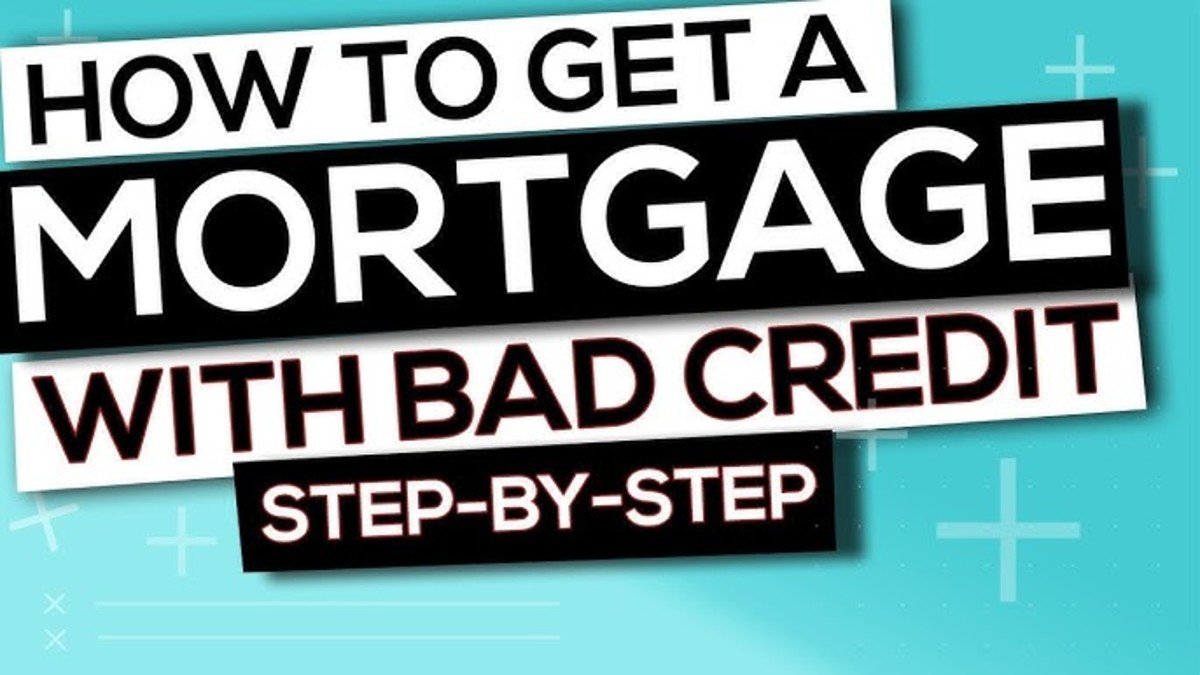[ad_1]
How to Get a Mortgage: Buying a home is a dream for many, but if you have bad credit and only a small deposit saved up, it can feel impossible. The good news is that getting a mortgage with a 5% deposit and bad credit is achievable-if you know the right steps to take.
In this guide, we’ll cover:
- How bad credit affects mortgage applications
- Government schemes that help buyers with small deposits
- Specialist lenders who work with bad credit borrowers
- Steps to improve your chances of approval
- Alternative options if traditional mortgages aren’t an option
By the end, you’ll have a clear roadmap to securing a mortgage, even with past financial difficulties.
Understanding Bad Credit and Mortgages
What is Considered Bad Credit?
Bad credit typically means you have a low credit score due to past financial issues, such as:
- Missed or late payments
- Defaults or CCJs (County Court Judgments)
- IVAs (Individual Voluntary Arrangements) or bankruptcy
- High credit card balances or loan rejections
Lenders see bad credit as a risk, making it harder to get approved—especially with only a 5% deposit. However, some specialist lenders still offer mortgages in these situations.
How Lenders Assess Your Application
When reviewing your mortgage application, lenders look at:
- Credit score – A higher score improves approval chances.
- Deposit size – A 5% deposit is considered high-risk, but government schemes can help.
- Income and affordability – Stable earnings increase lender confidence.
- Debt-to-income ratio – Lower debts mean better approval odds.
Government Schemes for Buyers with 5% Deposits
If you have a small deposit, these UK government schemes can help:
A. Mortgage Guarantee Scheme
- What it is: The government guarantees part of the mortgage, encouraging lenders to offer 95% Loan-to-Value (LTV) mortgages.
- Who qualifies? First-time buyers and home movers with a 5% deposit.
- Bad credit impact: Some lenders may still accept applicants with minor credit issues.
B. Help to Buy: Equity Loan
- What it is: The government lends you up to 20% (40% in London) of the property value, so you only need a 5% deposit and a 75% mortgage.
- Who qualifies? First-time buyers and existing homeowners (with restrictions).
- Bad credit impact: You’ll still need to pass affordability checks.
C. Shared Ownership
- What it is: Buy 25%-75% of a property and pay rent on the rest.
- Who qualifies? Households earning under £80k (£90k in London).
- Bad credit impact: Some housing associations are more flexible with credit checks.
Specialist Lenders for Bad Credit Mortgages
High-street banks often reject applicants with bad credit, but specialist lenders consider higher-risk borrowers. These include:
A. Subprime Mortgage Lenders
-
Examples: Precise Mortgages, Kensington Mortgages, Aldermore
-
What they offer: Higher interest rates but more flexible criteria.
-
Types of bad credit accepted: Late payments, defaults, CCJs (depending on severity).
B. Bad Credit Mortgage Brokers
Working with a whole-of-market broker improves your chances because they:
- Know which lenders accept bad credit
- Help present your case favorably
- Negotiate better rates
Tip: Avoid “payday loan” style lenders—opt for FCA-regulated brokers.
Steps to Improve Your Mortgage Approval Chances
Step 1: Check Your Credit Report
Get a free report from Experian, Equifax, or TransUnion and correct any errors.
Step 2: Save a Larger Deposit (If Possible)
Even a 6-10% deposit can open up better mortgage deals.
Step 3: Reduce Existing Debts
- Pay down credit cards and loans.
- Avoid new credit applications before applying.
Step 4: Show Stable Income
- Lenders prefer full-time employment over self-employment (unless you have 2+ years of accounts).
- Avoid job-hopping before applying.
Step 5: Consider a Guarantor Mortgage
A family member can co-sign your mortgage, reducing lender risk.
Alternative Options If You Can’t Get a Mortgage
If traditional mortgages aren’t an option, consider:
A. Rent-to-Own Schemes
- Rent a property with the option to buy later.
- Part of your rent goes toward the deposit.
B. Improve Your Credit First
- Wait 6-12 months, improve your score, then reapply.
C. Buy with Someone Else
- A partner or family member with better credit can apply jointly.
Conclusion
While getting a mortgage with a 5% deposit and bad credit is challenging, it’s not impossible. By using government schemes, working with specialist lenders, and improving your financial profile, you can boost your chances of approval.
Next Steps:
- Check your credit report for free.
- Speak to a bad credit mortgage broker for tailored advice.
- Explore government schemes to reduce deposit requirements.
With persistence and the right strategy, homeownership is within reach—even with past credit struggles.
FAQs
Q: Can I get a mortgage with a CCJ and a 5% deposit?
A: Yes, but only with specialist lenders. The CCJ should ideally be over 2 years old.
Q: What’s the minimum credit score needed?
A: There’s no fixed number, but a score above 600 (Experian) improves approval odds.
Q: How much higher are interest rates for bad credit mortgages?
A: Rates can be 1-3% higher than standard mortgages.
Q: Can I use a gifted deposit with bad credit?
A: Yes, as long as the lender accepts gifted deposits.
[ad_2]
Source link
